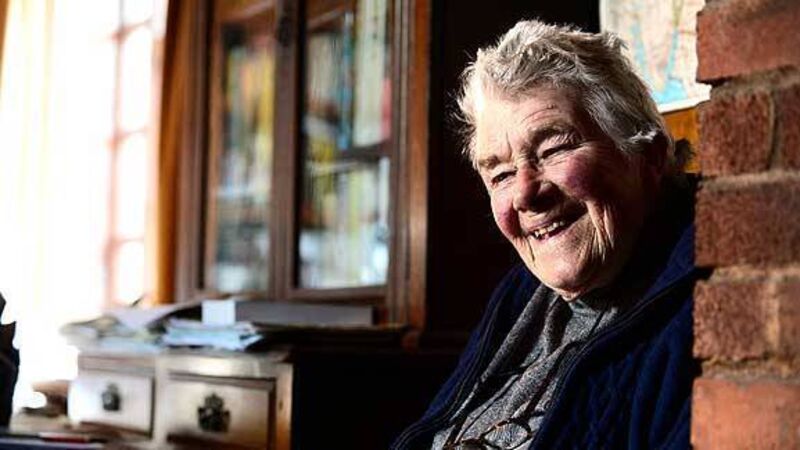At home with Dervla Murphy

DERVLA MURPHY looks good for 82 — a bit stooped maybe — but she’s spent a large portion of her life sleeping in huts, on mud floors, in her 50-odd years of travel. She’s had her hip and shoulder done too recently but there’s nothing wrong with her mind — this is an intellect sharp as a knife and an emotional intelligence that’s utterly consummate — she probably had my number the minute I walked in the gate.
The location is her home in Lismore, Co Waterford, and the reason is the relaunch of her book, On a Shoestring to Coorg: An Experience of Southern India, the story of her first trip away with her four-year-old daughter Rachel — her only child.











